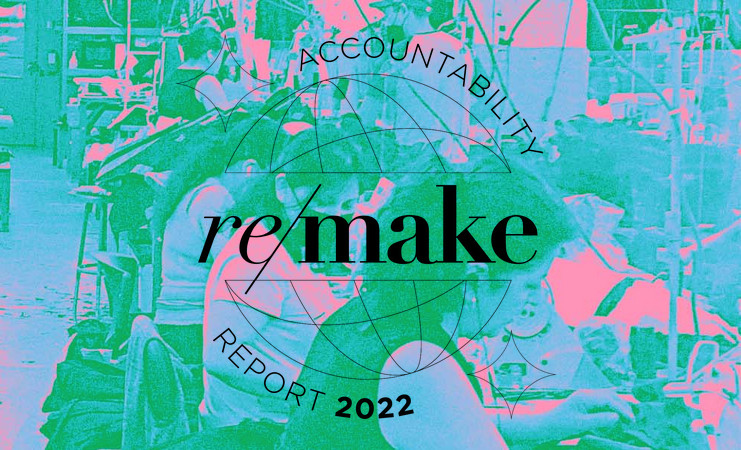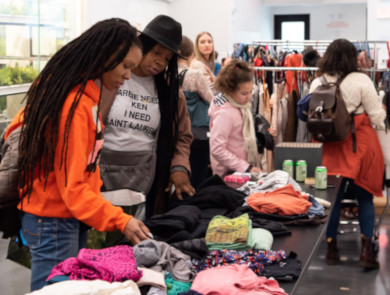Article from Issue #53 (January 7, 2023)
Fashion Accountability Report for 2022
by Remake.world

Source: Remake.world
2022 was a tale of two opposing truths in fashion: a glimmer of systemic change amidst a prevailing flood of harmful industry practices.
We witnessed an incredible pull back to the status quo. We are back to cheap consumerism, high profits, low wages, massive greenwashing, tokenistic racial justice and the constant churn of new collections. SHEIN — the Amazon of fashion — somehow rose to dominance, even though consumer interest in sustainability is at an all-time high. Boohoo launched a “sustainable” collection with Kourtney Kardashian Barker while the company was simultaneously being investigated for forced labor by the U.S. government and greenwashing by the UK government.
This, however, is not the full picture. Fashion’s old ways are swimming against a powerful undercurrent of systemic change. In particular, there are strong new policies on worker and human rights, transparency, and greenwashing winding their way through legislatures; there has been a surge in corporate action around climate change and a rapid rise in unionization; and we are witnessing seismic changes in geopolitical relations, as well as the rise of increasingly organized sustainable fashion social movements. These changes are redressing fashion behind the scenes.
Change is afoot. We will see a different fashion industry within a decade, and yet, who this industry will serve is still up for grabs.
Remake’s theory of change is simple: Pay people in fashion a living wage, as this is the best way to simultaneously deliver a fair society and fight climate change. Overproduction is fueled by low wages, and the transition to a net-zero future is impossible without massive investments in clean energy and in frontline communities that will take on much of the burden of decarbonizing. We need an intersectional, just approach to sustainability, and we need voluntary action to be replaced with and bolstered by bold policies and binding agreements.


 How to Make a Sustainable Halloween Costume
How to Make a Sustainable Halloween Costume Remake.world
Remake.world Thoughtful Ideas for Sustainable Gifts that Don't Cost the Earth
Thoughtful Ideas for Sustainable Gifts that Don't Cost the Earth